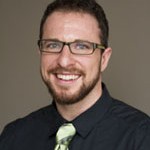Body issues: Everyone has them.
I don’t think I’ve met a single person who simply loved the body in which they were born. Men… Women…everyone has an issue with SOME PART of their body. At least most grown-ups do. Young children seem to be different…for the most part. They have no problem running around, being naked and loving all their parts.
So when do the body issues start? —AND—more importantly —WHY–
In today’s society we are now seeing more children under the age of twelve developing eating disorders. Anorexia nervosa and compulsive eating are the most common among such young children, but there are cases of bulimia being reported. It is estimated that 40% of nine year olds have already dieted and we are beginning to see four and five year olds expressing the need to diet. Are young children being robbed of their childhoods? Why is it that so many young children are becoming obsessed with dieting and their weight?
More reason to LOVE THE BODY you are in.
Children are at a risk for developing an eating disorder if the parents themselves are too preoccupied with appearance and weight. If the parents are constantly dieting and expressing dislike towards their own bodies, the child will receive the message that appearance is very important.
Eating Disorder Awareness week is coming at the end of February. The point of today’s show is to make US AWARE of how our own stresses and negative body images affect our children. If they are going to grow up to love and accept their bodies, they must be raised to love and accept themselves.
On this show, Ryan Sallans returns as a guest to discuss how to have a positive attitude about our bodies, and how we can save our children from self-esteem issues.
Our Guest
Ryan Sallans
 Since 1999, Ryan Sallans has been educating diverse audiences on topics related to sexuality, eating disorders, and holistic health. He provides trainings for professionals serving the LGBTQ community and those working toward inclusive environments. He also works with organizations in developing healthcare protocol, policies and modules used to train clinicians and other medical staff to increase cultural competency and services for LGBTQ clients.
Since 1999, Ryan Sallans has been educating diverse audiences on topics related to sexuality, eating disorders, and holistic health. He provides trainings for professionals serving the LGBTQ community and those working toward inclusive environments. He also works with organizations in developing healthcare protocol, policies and modules used to train clinicians and other medical staff to increase cultural competency and services for LGBTQ clients.
Ryan also visits university and college campuses where he speaks to audiences about his own transition from female to male in the popular presentation, FTM: Scouting the Unknown, other topics are also available upon request.






Leave a Reply